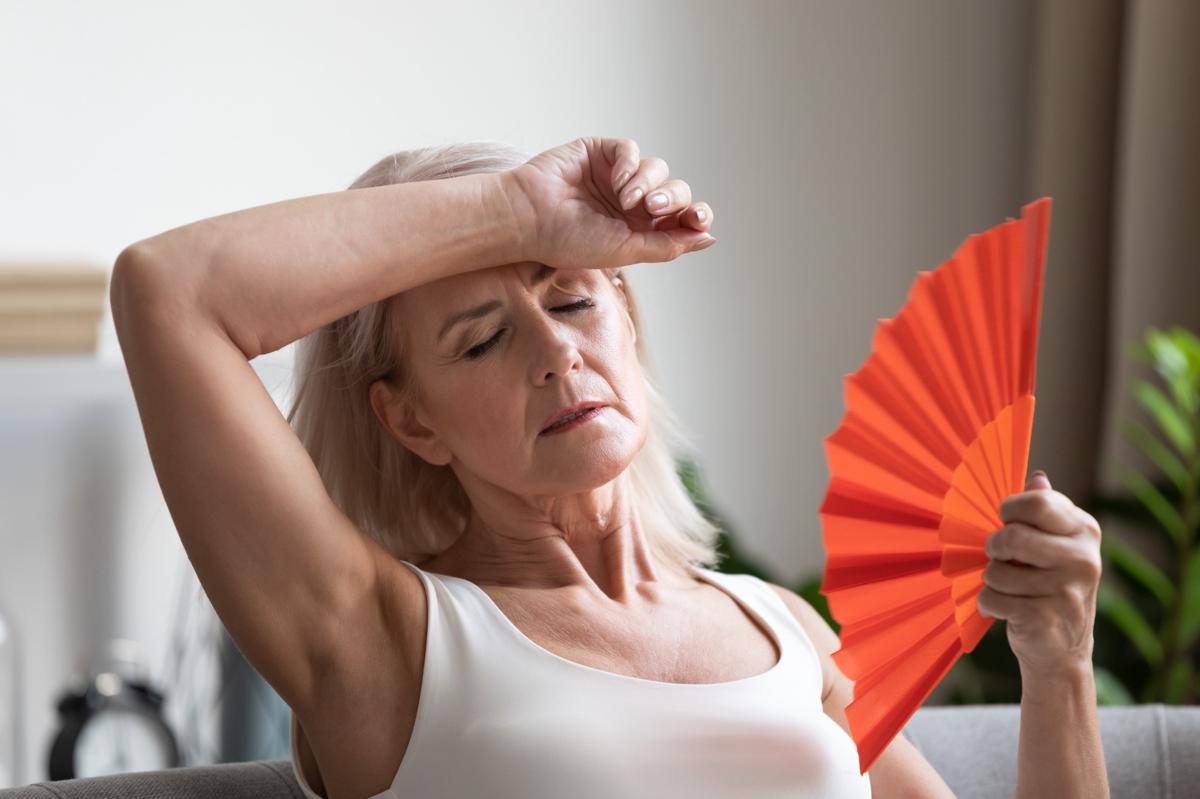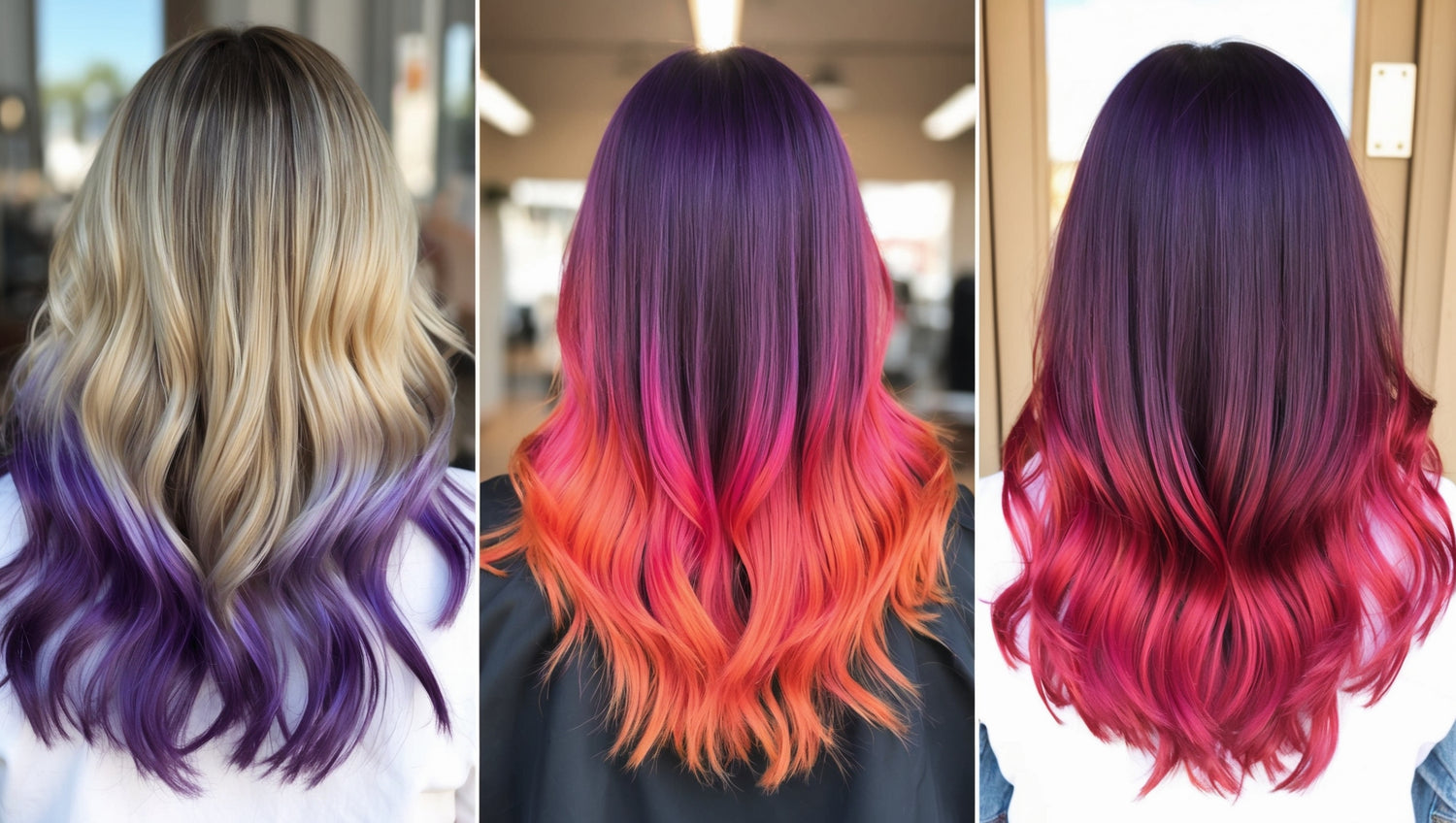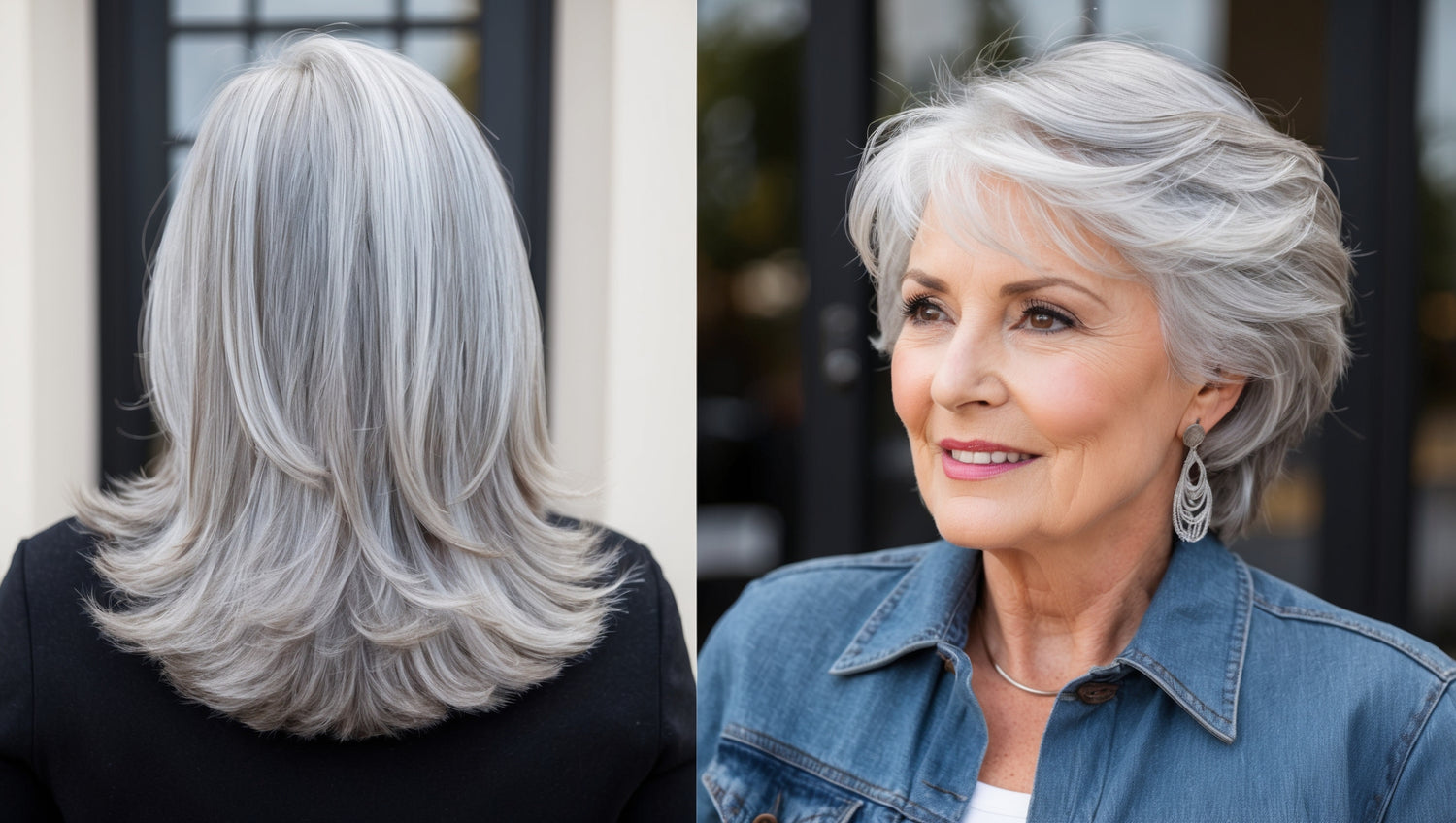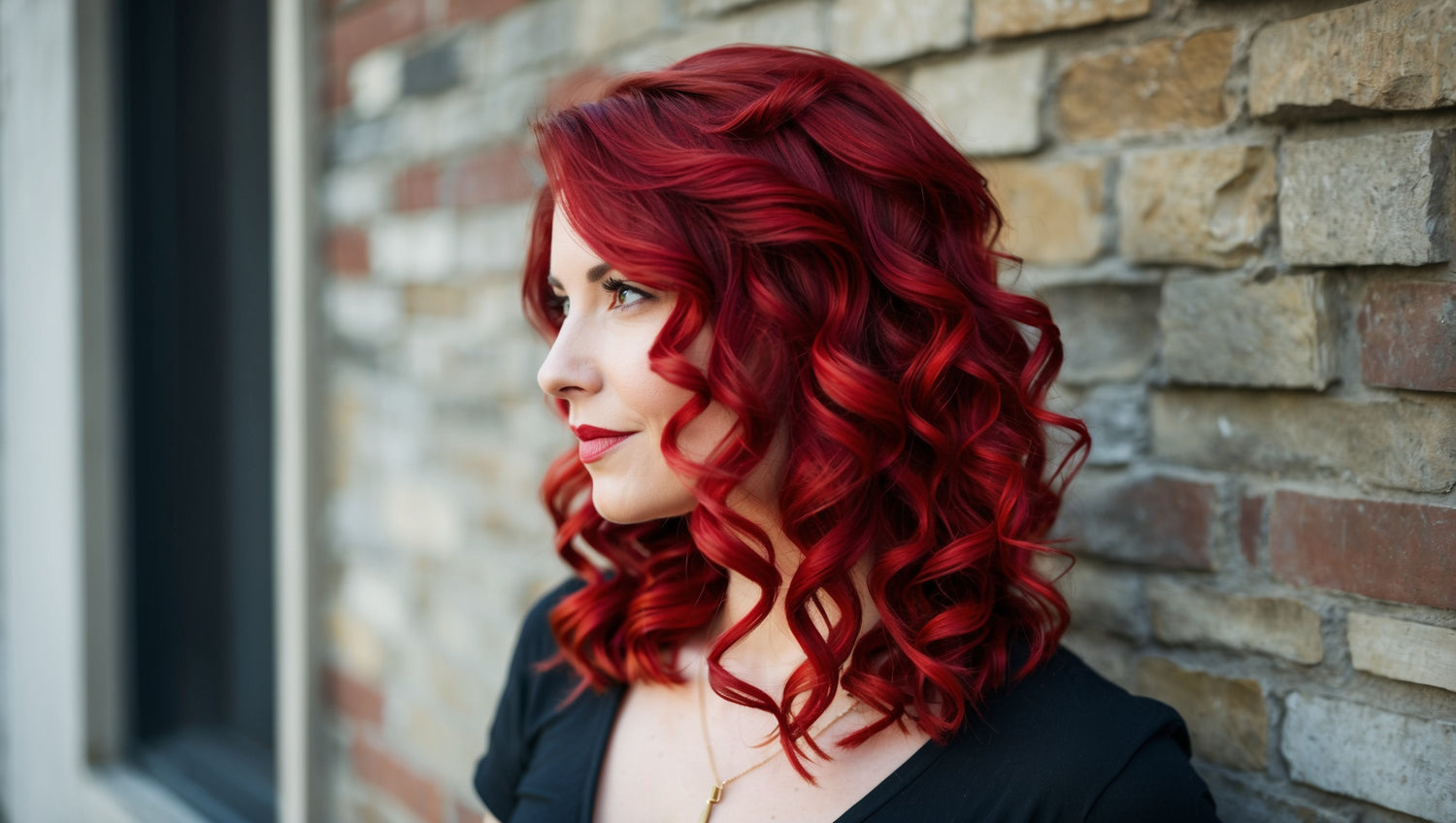WHEN DO YOU ENTER MENOPAUSE?
When women enter menopause varies from person to person. Women often begin to change their hormone levels around the age of 40. From the mid-40s onwards, menstruation usually becomes more irregular. By their early 50s, most women are already in the last phase of menopause. Many women have not had their period for a year or more.
WHY DOES HAIR FALL OUT MORE DURING MENOPAUSE?
The hormone estrogen causes strong hair growth. Your hair is shiny and full. During menopause, estrogen levels drop and male hormones increase. The hair root reacts sensitively to the drop in estrogen levels, shortening the growth phases and lengthening the hair's rest periods. This causes increased hair loss.

Furthermore, hair falls out more during menopause and becomes thinner because the metabolism slows down with age. This reduces blood flow to the scalp and hair roots. The hair is therefore less well supplied with oxygen and nutrients.
The body can no longer regenerate some keratins. This causes hair to become thinner, more brittle and fragile. The hair becomes thinner on the top of the head and around the crown. However, it remains fuller on the forehead and sides.
IS HAIR LOSS A SYMPTOM OF MENOPAUSE?
Hair loss is not a general symptom of menopause. It depends on whether you are sensitive to the hormone dihydrotestosterone. Only about one in four women reacts with hair loss during menopause.

WHAT CAN YOU DO ABOUT HAIR LOSS DURING MENOPAUSE?
Hair loss does not only have to be caused by menopause. A diet that does not provide the body with enough vitamins can also cause hair loss.
A protein-rich diet is also important for stronger hair growth. Hair follicles need protein to make your hair grow strong.
Another important factor in preventing hair loss is avoiding stress. Meditation, exercise, and activities that help you unwind are good ways to reduce stress.
Silk and bamboo pillowcases are smoother and less abrasive to your hair than cotton. They also prevent premature breakage and over-stressing of your hair.
Proper care is also essential for preventing hair loss.

HAIR CARE FOR FULLER AND STRONGER HAIR
The Volume Shampoo from MeMademoiselle contains important ingredients that give your hair volume.
Sodium Cocoamphoacetate brings your hair into shape. It contains beer, which consists of yeast, malt and hops and stimulates hair growth. It also soothes the scalp. Sea buckthorn berries, with their vitamin C content, ensure shiny hair. Hydrolyzed keratin helps your hair to regenerate and repair itself. It also ensures suppleness and shine.
Daily brushing can also have a positive effect on hair growth. Regular, thorough brushing stimulates blood circulation in the scalp. This promotes hair growth.
If none of this helps, a therapy in which the estrogen deficiency is compensated or replaced by taking medication may be useful. However, the administration of estrogens is strictly monitored by a doctor.





